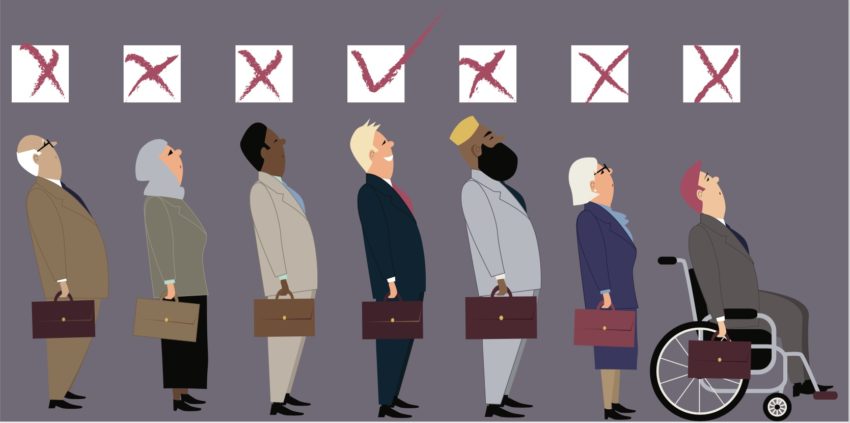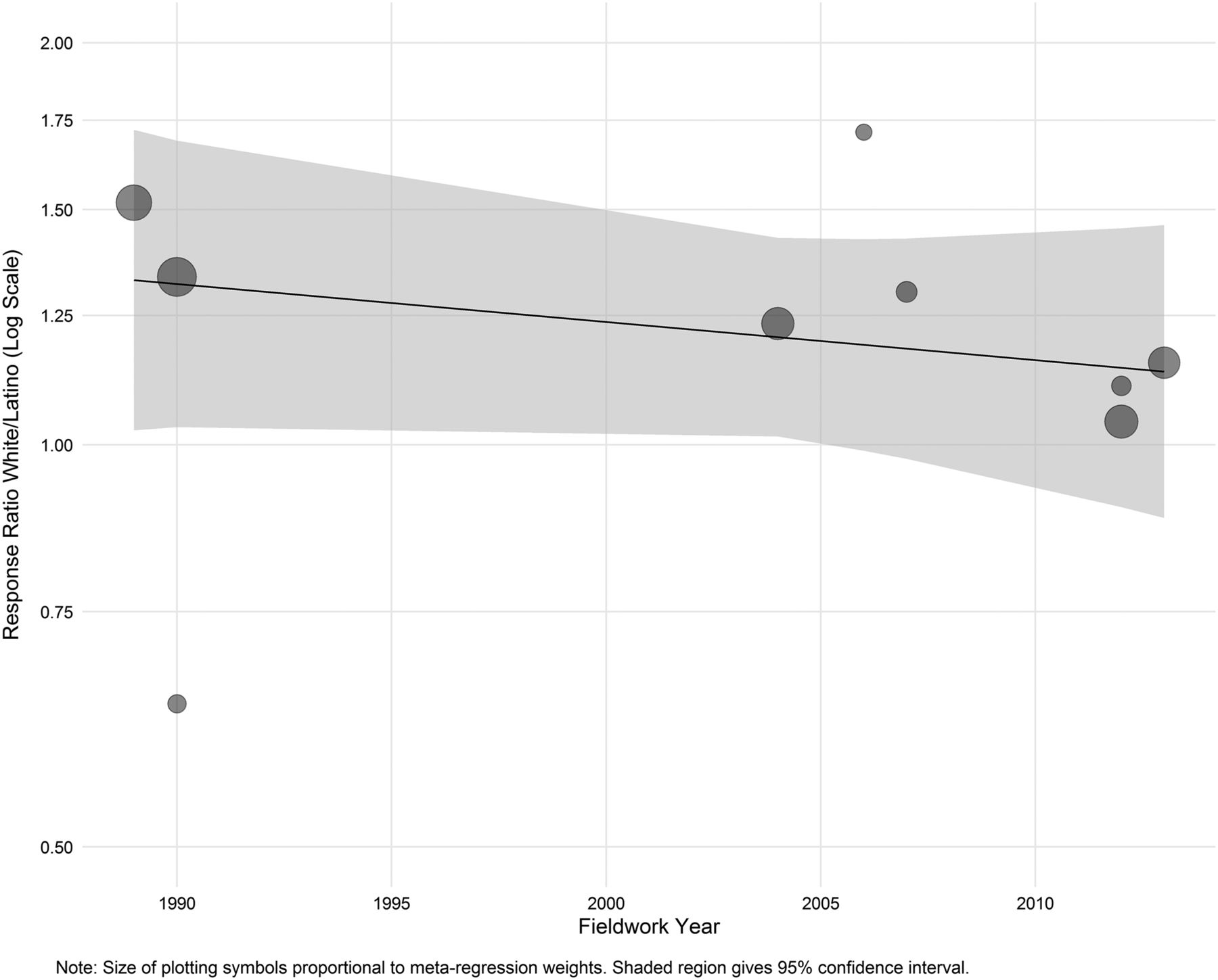
Share On Social!
The appalling bias against Latinos and Blacks hasn’t changed much in the last 25 years, according to a recent study by researchers at Northwestern University, Harvard University, and the Institute of Social Research in Norway.
This study is evidence for one of the many reasons Latinos and Blacks suffer a wealth divide.
Additionally, hiring bias also contributes to the enormous Latina pay gap, in which Latinas who have bachelor’s degrees earn 35% less compared to white men with the same degree.
“The truth, based on lots of data over years, is that if you’re Black or Latino in the U.S., you get far from an equal shake. Your efforts have to be longer, stronger, and chances are you still will be treated worse. The deck gets stacked against you even as you try mightily and then people throw the results in your face”, wrote Erik Sherman in Forbes.
Hiring Bias & The Research
Overall, 3 in 4 U.S. Latinos (78%) believe Latinos face bias in America today, compared to 92% of blacks and 55% of whites who say they face bias.
The Northwestern, Harvard, and Institute of Social Research study examined the change over time in the level of hiring bias in the U.S. Labor markets.
Combined, these findings represent 55,842 job applications submitted for 26,326 positions. They concentrated on patterns since 1989 (n = 24 studies). The study was published in 2017, but nothing published since then suggests that hiring bias has improved.
The study found Latinos have only seen a very slight drop in discrimination against them. Blacks haven’t seen any change in the last 25 years. Since 1989, whites get an average of 36% more callbacks than African Americans, and 24% more callbacks than Latinos.
What Hiring Bias Means For Latinos & Blacks
Unfortunately, your race has a colossal influence on your chance of an employer being willing to even consider you for a position.
There are many implications including:
- Less callbacks mean a lower chance of receiving a job offer.
- If countless employers are willing to discriminate in considering someone for a position, you may realistically wonder if compensation offers will be equivalent, on the average.
- Fewer callbacks likely mean less offers. Less offers give a job seeker fewer options to find the best available job.
- Less offers mean less leverage in negotiations because you have fewer options.
Essentially, if you’re Latino or Black, especially a Latina, you face a more difficult path to attain a job interview than your white counterparts, even with the same skill-set.
How Can We Reduce Hiring Bias?
Researchers strongly suggest advocating for enforcement of antidiscrimination legislation.
They also suggest justifying the continuation of compensatory policies, such as affirmative action, to progress equality of opportunity.
More companies also are offering “equal paid family leave” in 2019.
“Equal paid family leave—along with encouraging men to take it—will help to minimize hiring bias and the motherhood penalty,” according to Shelley Zalis of Forbes.
Even articicial intelligence (AI) can help.
Computer manufacturer IBM announced in December 2018 the launch of IBM Watson Recruitment’s Adverse Impact Analysis capability.
This AI tool identifies instances of bias associated with education, race, gender, age, or previous employer by analyzing the historical hiring data of the organization and underscoring potential unconscious biases, according to an HR Digest report.
“These features empower human resource professionals to select the most promising candidate based on their skills and experience and to recognize and avoid any existing bias in its hiring trends,” according to the report.
“An organization can be convinced that the selected job applicant was the best for the given role if they use AI trained with unbiased data. It results in a more productive workplace which is more diverse, promotes a bias-free environment and foster fresh perspectives.”
Learn about how bias impacts the doctor’s office, too!
How Can You Tackle Implicit Bias?
Seek training or help put an end to microaggressions.
You can also “rewire” implicit bias toward more compassion for others.
Download the free Salud America! “Find Out If You Have Implicit Bias and What to Do Next” Action Pack. This will guide you to see if you have implicit bias, reflect and learn from others who have overcome their own implicit bias, and encourage others to learn about implicit bias, too.
The Action Pack was created by Dr. Amelie G. Ramirez, director of Salud America! at UT Health San Antonio.
Explore More:
Overcoming Harmful BiasesBy The Numbers
3
Big Excuses
people use to justify discriminatory behavior



